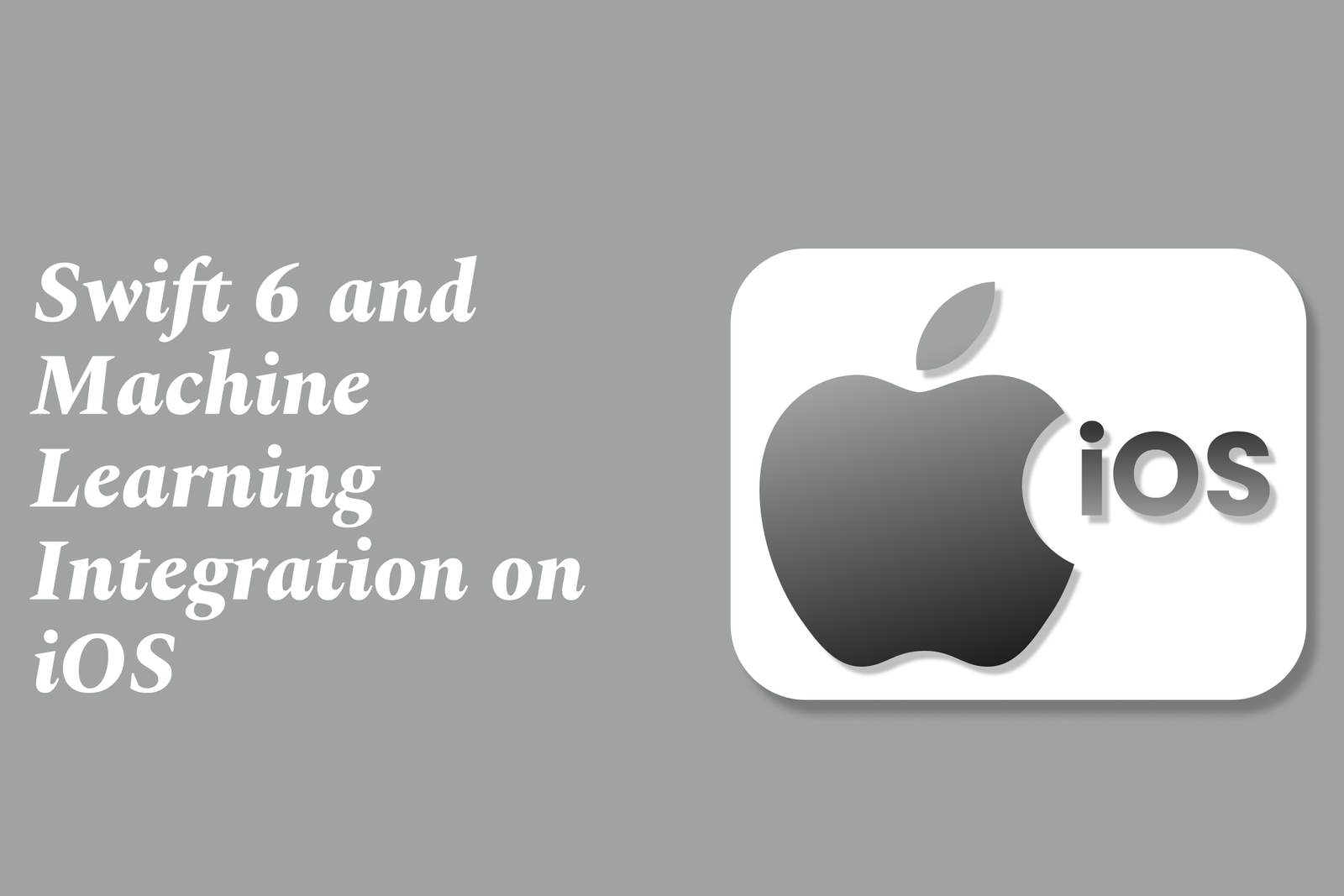Swift 6 and machine learning integration on iOS
Swift 6 enhances iOS development with improved concurrency, safety, and performance, while seamlessly integrating Apple’s advanced machine learning foundation models. This enables developers to build fast, secure, and intelligent apps with native AI capabilities on-device and in the cloud.
Swift 6 and Machine Learning Integration on iOS
1 ) Overview of Swift 6 Release
Swift 6 is a major update expanding Swift's capabilities beyond app development to libraries, internet scale services, and performance critical code. It introduces enhanced safety, speed, and supports more platforms including expanded Linux and Windows compatibility. New features include concurrency improvements, typed throws, and support for unique ownership semantics in generics. The update encourages migration with a new strict concurrency language mode focused on data race safety.
2 ) Notable Language and Library Enhancements
Strict Concurrency Mode: Swift 6 enables an opt in language mode that enforces data race safety in concurrent code by turning potential data races into compiler errors, improving upon previous warning based checks.
Typed Throws: Functions can now specify the exact types of errors they throw, improving error handling precision especially in generic and embedded contexts.
Ownership and Generics: Support for non copyable types (~Copyable) has been extended into generics, allowing safer and more performant management of unique resources.
3 ) Community Perspectives on Migration
Experts advise that enabling Swift 6 concurrency features early helps future proof codebases, as the fully enabled concurrency model is now default in Swift 6. However, a migration path includes toggling feature flags for a smoother transition. Discussions highlight the complexity of concurrency migration but endorse starting adoption sooner rather than later to avoid difficult redesigns.
4 ) Apple’s On Device and Server Foundation Models for Machine Learning
Apple has developed powerful on device (~3 billion parameter) and server based foundation language models optimized for performance and privacy. These models support diverse intelligent features in iOS, iPadOS, and macOS with native Swift integration, enabling functionalities like text generation, summarization, and image generation. The new Foundation Models framework provides developers direct access to these models with minimal code.
5 ) Responsible AI Principles and Privacy
Apple’s foundation models are built with principles prioritizing user empowerment, authentic representation, careful design to avoid misuse, and stringent privacy protections. No user data is used for training; model development relies on licensed and publicly available data, filtered to remove sensitive information.
6 ) Integration of Machine Learning on iOS
With Swift 6, the integration of machine learning into iOS apps is streamlined via native support for Apple’s foundation models and Core ML framework. Developers benefit from fast, efficient ML inference on Apple silicon, with tools embedded in the Swift ecosystem and Xcode, facilitating embedding AI powered features with ease.
7 ) Machine Learning in Medical and Emergency Contexts
Research highlights practical applications of ML combined with Swift and 5G technology in healthcare, such as reliable telemonitoring and mobile ultrasound integration enhancing emergency surgical outcomes. This demonstrates the expanding role of Swift enabled ML across critical real world domains.
Summary: Swift 6 significantly strengthens iOS app development with concurrency safety, ownership control, and typed error handling, while enhancing cross platform support. Simultaneously, Apple’s advanced ML foundation models integrated into Swift empower developers to build intelligent, privacy conscious iOS applications with cutting edge on device and server assisted AI capabilities.
https://justacademy.in/news-detail/react-native-0.75?s-most-exciting-features-?-full-breakdown
https://justacademy.in/news-detail/react-native-now-powers-desktop-apps
https://justacademy.in/news-detail/android-accessibility-improvements-in-2025
https://justacademy.in/news-detail/flutter-test-lab-new-features
https://justacademy.in/news-detail/react-native-and-firebase:-the-perfect-pairing-in-2025
Related Posts
Java supports GDPR and data privacy by enabling secure data handling through encryption, controlled access, and precise data management. It allows developers to minimize PII exposure, ensure data confidentiality, and design workflows that comply with data protection regulations effectively.
Java code quality tools have evolved to include advanced static analysis, integrated security checks, and AI-powered code reviews. These updates help developers detect bugs, enforce coding standards, and enhance security, streamlining the development process and improving overall code reliability.
Java remains a cornerstone in big tech companies, evolving with modern features like records, pattern matching, and virtual threads. Its robust ecosystem, enhanced performance, and growing AI integrations keep it vital for both legacy systems and innovative new projects.
Java and CI/CD pipeline optimizations streamline Java application development by automating builds, tests, and deployments. They improve efficiency through parallelization, caching, and secure secrets management, enabling faster feedback loops and more reliable, scalable software delivery.
Java supports modern cryptography standards through its flexible Java Cryptography Architecture (JCA), enabling integration of advanced algorithms like AES, EdDSA, and post-quantum tools. Libraries like Bouncy Castle offer FIPS-certified, hardware-accelerated implementations for secure development.
Java 23 enhances record patterns by enabling concise, direct destructuring of record components within pattern matching, simplifying type checks and data extraction. This improvement boosts code readability and expressiveness by reducing boilerplate in handling immutable data classes.
Java remains a top choice for mobile app backends, powering scalable, secure, and high-performance server-side solutions. Latest trends include cloud-native microservices, reactive programming, and enhanced JVM optimizations, enabling efficient, flexible, and robust mobile backend development.
Java SE 24 and LTS Java SE 21 offer enhanced features and performance, while Apache Spark 4.0.0 introduces Scala 2.13 support and advanced ML and SQL capabilities. Together, they empower developers to build scalable, high-performance data applications with modern tools.
JUnit 5 modernizes Java testing with a modular architecture, improved assertions, and seamless Java 8+ support. Beyond JUnit, tools like Mockito and AssertJ enhance mocking and assertions, creating a powerful, flexible ecosystem for writing clean, efficient Java unit tests.
Java plays a pivotal role in cloud automation tools by providing a robust, platform-independent language used to build scalable automation frameworks like Jenkins and Selenium, enabling efficient CI/CD pipelines, testing, and orchestration across diverse cloud environments.










